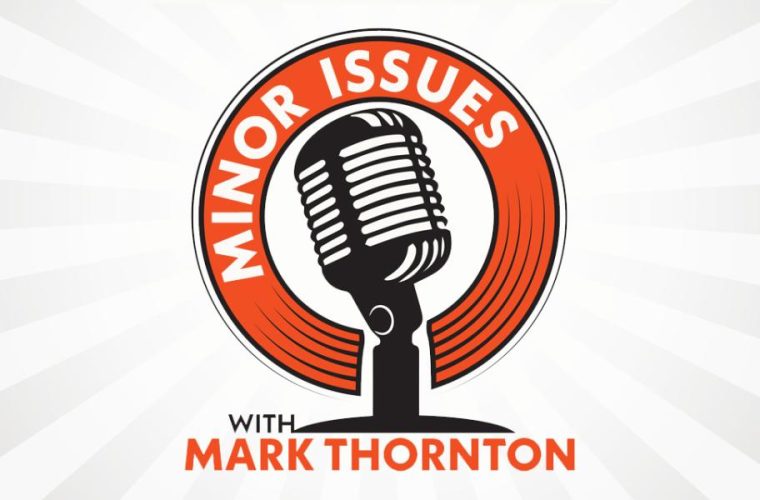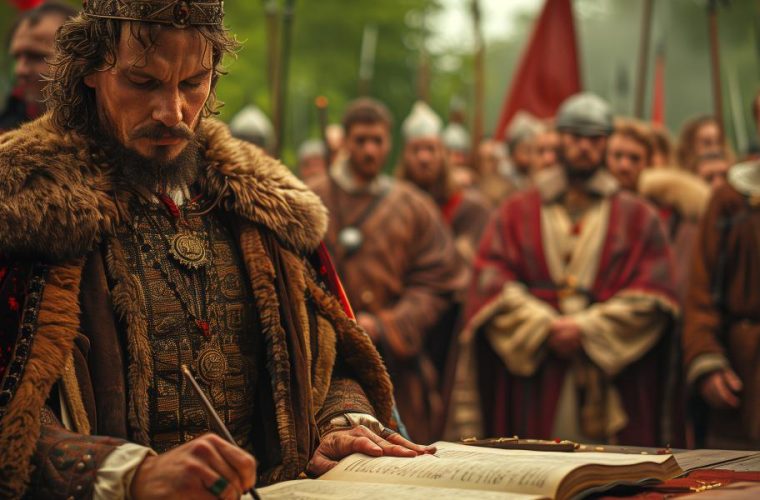
A Conversation with Prince Michael of Liechtenstein
On November 15, 2021, almost twenty-one months ago, I once again had the rare and delightful opportunity to have a conversation with Prince Michael of Liechtenstein. His insights, especially with his directness and unequivocal honesty, have frequently provided me with a lot of food for thought in the past. This interview was no different. His candid and unfiltered responses to a wide variety of questions and topics made this conversation as illuminating as it was enjoyable.
Good things take time—that’s why I always thought I would release this interview once I personally believed the time was right or, at least, when I would have hope that people might better understand (or better yet, remember) that the concept of cause and effect still applies. Actions have consequences: this is an everlasting truth, and it matters not if governments the world over and all their servants try to convince the public otherwise.
———
We started off our discussion by addressing the most common political tactics and demagoguery strategies that we are increasingly seeing employed in the West over the last few decades. Of course, “divide and conquer” is nothing new. It’s one of the oldest tricks in the book. However, the way this strategy has been used in recent years, with the help of mass media and social media, has made it a lot more effective and thus a lot more dangerous. Prince Michael was quick to point straight to the roots of all these dangers, including the return of Marxism in the West and all of the toxic sociopolitical narratives we encounter today—namely, the Frankfurt school.
He also objected to the modern obsession of left-leaning political leaders with “equality”:
Equalization leads to the human being nothing other than an object. A characteristic of being human is that humans are different. In this lies the strength of humanity. The most successful civilizations are those who acknowledge this. There is no equality. Equality is only achieved by coercion. Imagine a technocratic world view: People who are self-responsible, independent, and not equal . . . it will be very difficult to insert them into a technocratic system. Therefore, this dichotomy will always remain, between technocracy and freedom.
To illustrate this point even further, Prince Michael shared a discussion he had with a high-ranking functionary of an international organization, confirming that the aim of the current system is to impoverish the average citizen and to destroy all savings and private wealth because it is much easier to control people who are in debt, who have no private wealth, and who are dependent on their government.
Continuing our talk in this vein, we both agreed that “political correctness”—or more accurately put, censorship—is one of the most important “weapons” that the establishment uses to enforce its “utopian” vision of society, where all citizens are conforming to the demands and dictates of a central authority and where all dissent and all objections are discouraged as “antisocial.” On this point, the prince noted that this silencing weapon “is directed against all of Western culture and traditions which have been established, and it is directed against individualism.” He also highlighted the dangers of the current promotion of victimhood as a virtue. As he put it, “the biggest enemy of ‘political correctness’ is good old common sense.”
We then turned our attention to the economy and to the bizarre and destructive turn that monetary and fiscal policy has taken since the last global recession. After being asked how he assessed the damage done by the pandemic lockdowns and business shutdowns, he clearly responded that the damage was enormous, and he accurately predicted:
In the long term, the biggest problem concerning inflation will be more people leaving the production and the service sector, especially after covid and due to the climate policies, for the administration and control sectors . . . government or something similar. Meaning, they will have enough money to consume due to their funny monetary policy, but the supply will not be able to keep up.
He plainly highlighted that money has to be tethered to and restrained by reality. Money must be grounded in economic output. That is why infantile ideas like modern monetary theory, or the policy of endless money printing, can never work.
He also made it clear that the long-standing trend toward more and more centralization, overregulation, and the insupportable mountain of debt that states have accumulated are at the heart of the West’s economic woes. In fact, he was convinced that we are already in a global debt crisis, even though its direct impact might not be entirely visible yet. This point seems extremely prescient from today’s perspective, of course: the banking crisis certainly showed that the “cracks in the system” are becoming apparent now and that the debt avalanche has only just begun.
Our talk eventually touched on the topic of freedom as I was curious to know his thoughts on the possibility of a truly free social order—a goal we are very far away from today. His views on this were crystal clear:
Though we are talking about freedom, we do not understand freedom as self-responsibility, in the sense that someone can choose what’s best for him or herself and live accordingly. Freedom is viewed as the ability to simply to do certain things, but in the end, you are squeezed into a very tight corset. And this is dangerous. Because “freedom” has always meant “responsibility.” To have a free society, it is important to have a decentralized structure. In Europe, we have a dangerous tendency towards more and more centralization, which is antagonistic to democracy. In my view, democracy lives in subsidiarity.
He was especially passionate when I asked him about freedom of speech in particular:
I think we have to return to the competition of ideas. We need to open up discussions, and we need to step out of the uniform mindset.
When I founded Geopolitical Intelligence Services, I said we will try to be unbiased, not led by ideologies, but simply look at the situation as it is and at what is likely to happen. Not focus on giving our own suggestions about how things could improve but simply look at what experts say is likely to happen. It was interesting and shocking to me when I was suddenly told, “No, you are very biased!”
When I asked, “But why? Can you show me an example?”, I was told, “You hold a different opinion than the Financial Times and the Economist, so you are biased!” Clearly, the Financial Times and the Economist were the gospels, and we were the heretics.”
We also tackled the problem of public and higher education, with the prince clearly identifying a dangerous trend in schools and universities becoming increasingly politicized. He lamented that we have unfortunately lost the education system to the Left. “Competing ideas should be encouraged, but now, especially in the US, the common mission of universities is: ‘We no longer share knowledge and wisdom, we simply impose dogma and unquestionable beliefs.’ . . . Like in the good old Soviet system, these institutions are morphing into forges of ideology,” he warned.
Overall, the topics covered and the insights shared in this interview include some of the most important points and arguments that every self-responsible, self-thinking, and productive Western citizen, voter, and taxpayer needs to hear and seriously consider in order to prepare for the risks we face today. What makes this conversation all the more remarkable is the accuracy of the predictions that Prince Michael shared. He saw it all coming, all the challenges we’re up against today from the debt crisis and the inflationary spiral to the sociopolitical divisions and the suppression of free speech in favor of ideological zealotry.
We can safely assume that the accuracy of his predictions is not a direct result of some kind of special clairvoyant gift—it is actually all quite simple to explain. To reach his prescient conclusions, Prince Michael used the very same gift that was given to all of us, the thing that differentiates us humans from animals and all other living beings: the gift of reason and the courage to use it independently.
After you watch this interview in full, I’m sure that you will draw your own conclusions and hopefully take away your own lessons and your own “food for thought.” Personally, this conversation certainly gave me a lot to think about, but it also decisively confirmed one thing: liberty is not everything, but without liberty, everything is nothing.



